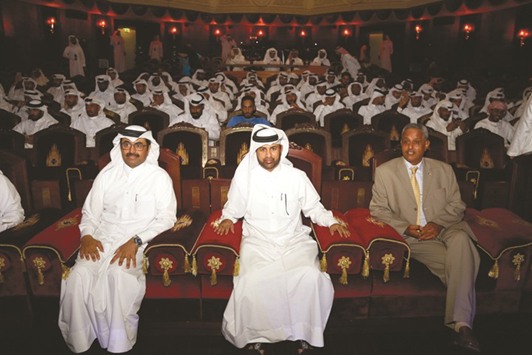The maritime singing competition, the Art of Al-Nahma Prize, has concluded at Katara – the Cultural Village Foundation.
The “first-of-its-kind competition was a unique event” dedicated to traditional maritime singing, known as ‘sea shanty’, Katara said in a press statement.
A ‘sea shanty, chantey or chanty’ is a type of work song that was once commonly sung on board sailing vessels.
The competition, open to participants from the GCC countries, sought to revive Qatar’s musical heritage and folklore through its enactment of maritime traditions. The event saw the participation of 21 contestants, of whom five were from Qatar.
The event kicked off on April 8 and featured six contestants in the final qualification rounds: Hamad bin Hussein and Salem Waleed Saleh from Kuwait, Ahmad Bahar and Ahmad Abdulah Gomaa Farhan from Bahrain, and Ali Saeed al-Merri and Ali al-Haddad from Qatar.
A grand prize of QR100,000 was awarded to the first-place winner, al-Merri from Qatar, while second-place winner Saleh from Kuwait won a prize of QR70,000. Besides, QR50,000 went to Farhan from Bahrain who finished third in the competition.
The winners also received precious pearls named Al-Dana, Al-Hasbaa and Al-Badla.
The event was in line with Katara’s efforts to revive and keep long-forgotten traditions alive by promoting them through such competitions and events and providing the public with an opportunity to experience a part of their heritage, the statement noted.
Katara general manager Dr Khalid bin Ibrahim al-Sulaiti said: “Aside from the keen competition that the audiences witnessed throughout the event, this initiative also showcased the rich cultural values of the Qatari identity through a full-fledged programme of activities that consisted of lectures and seminars by participants from various GCC countries, reflecting the diversity of cultures.
“We need to remember that this type of tradition is rooted in our past. Our ancestors sang these songs when they were on their fishing trips or pearl-diving excursions, mostly to keep themselves entertained. Years passed and this tradition continued, becoming an integral part of the heritage of the Arab states in the Gulf.”

HE the Minister of Energy and Industry Dr Mohamed bin Saleh al-Sada, Dr Khalid bin Ibrahim al-Sulaiti and other dignitaries and officials attending the event.
